Are you looking to make your sales team meetings more effective and engaging? A well-structured agenda can transform discussions and drive results, ensuring that every meeting is productive and focused. By outlining key topics, setting clear goals, and encouraging team collaboration, your meetings can become a powerful tool for achieving sales success. Join us as we dive deeper into crafting the perfect sales team meeting agenda!

Meeting Objective and Goals
Effective sales team meetings require a well-defined agenda that outlines the meeting objective and goals. These meetings aim to enhance communication among team members, review performance metrics such as monthly sales figures, and strategize for upcoming campaigns. Identifying key performance indicators (KPIs) like conversion rates and customer acquisition costs allows the team to focus on actionable insights. Collaboration on pipeline management ensures that leads are being effectively nurtured, while setting individual and collective sales targets fosters accountability. Incorporating feedback loops enables continuous improvement in techniques and methodologies, encouraging a culture of growth. Establishing clear follow-up actions ensures that the discussions lead to measurable outcomes that drive revenue growth.
Agenda Items and Topics
The sales team meeting agenda will focus on crucial elements for enhancing sales performance and strategizing for upcoming quarters. Key agenda items include reviewing Q3 sales figures, analyzing the success rate of recent marketing campaigns like the Spring Promotion in April 2023, and discussing action points based on customer feedback from the latest client satisfaction survey conducted in September 2023. The team will also explore potential leads from industry events such as the National Sales Conference held in Chicago, IL, in June 2023. Lastly, planning for training sessions on new product launches, specifically the EcoTech series, scheduled for December 2023, will be a vital discussion point.
Key Participants and Roles
The sales team meeting agenda includes critical participants who play distinct roles in driving organizational success. The Sales Director oversees goal alignment, performance metrics discussion, and strategic initiatives for the upcoming quarter. The Regional Managers provide insights on sales performance across specific territories, presenting data on key clients and opportunities. Account Executives share firsthand customer experiences, detailing successful sales strategies and identifying challenges faced in negotiations. The Marketing Coordinator updates the team on promotional campaigns and leads generated, ensuring alignment with sales efforts. The Sales Analyst presents data analytics, focusing on trends and forecasts that inform decision-making. Each participant contributes valuable perspectives, enhancing collaborative planning and driving overall sales performance.
Time Allocation for Each Topic
Sales teams can optimize meeting effectiveness by strategically allocating time for each discussion topic. Opening remarks, typically lasting 5 minutes, set the tone and agenda for the session. Pipeline updates, encompassing current deals and forecasts, usually take about 20 minutes, allowing team members to share insights on opportunities and challenges faced in territories like the Midwest or Southeast. Performance metrics discussion, lasting 15 minutes, involves reviewing KPIs such as conversion rates or quarterly sales goals. Product training segments can allocate 10 minutes to discuss new features or offerings, such as a recent software update in the CRM system. Lastly, a 10-minute Q&A session encourages team engagement and addresses any outstanding queries related to strategies or market trends. Closing remarks can finalize the meeting in 5 minutes, summarizing key takeaways and action items.
Follow-up Action Items and Deadlines
Sales team meetings are essential for tracking the progress of follow-up action items and establishing deadlines. Each week, team members review client feedback, sales reports, and product performance metrics. Action items may include organizing client outreach campaigns, updating customer relationship management (CRM) systems, or preparing proposal documents for prospective clients. Deadlines often vary; for instance, immediate follow-up tasks may require completion within 48 hours, while long-term initiatives could span several weeks. Effective documentation of these action items and deadlines ensures accountability and consistency in achieving quarterly sales targets, ultimately contributing to the overall success of the sales strategy.
Letter Template For Sales Team Meeting Agenda Samples
Letter template of sales team meeting agenda for client outreach strategies
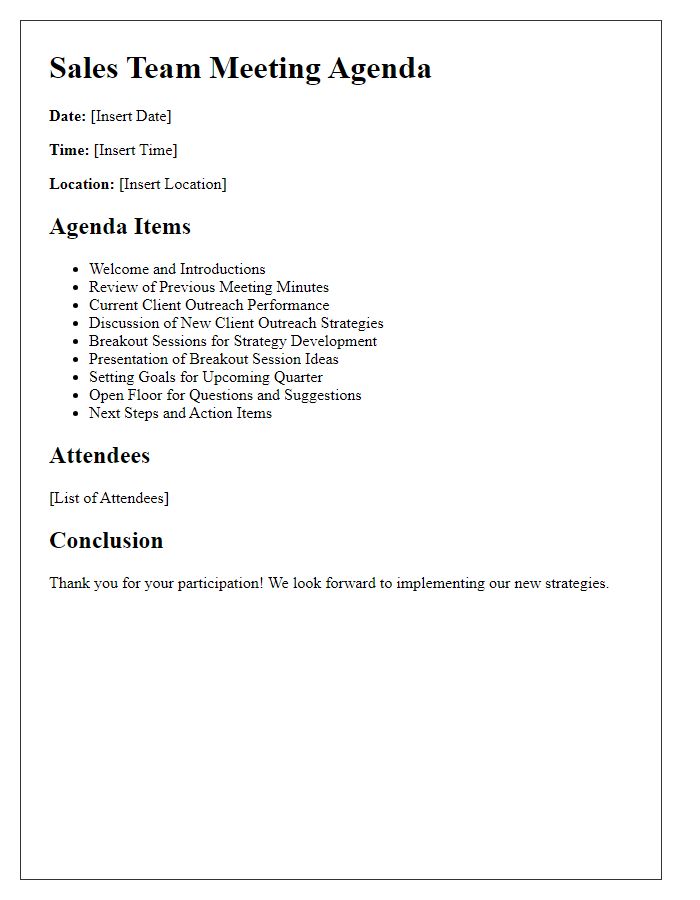
Letter template of sales team meeting agenda for training and development
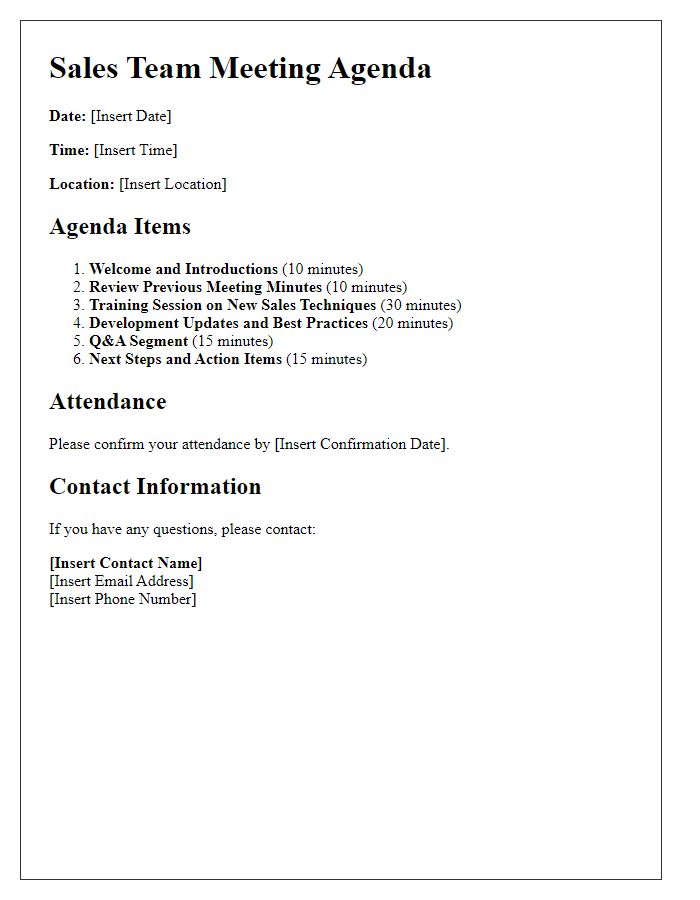
Letter template of sales team meeting agenda for market analysis discussion
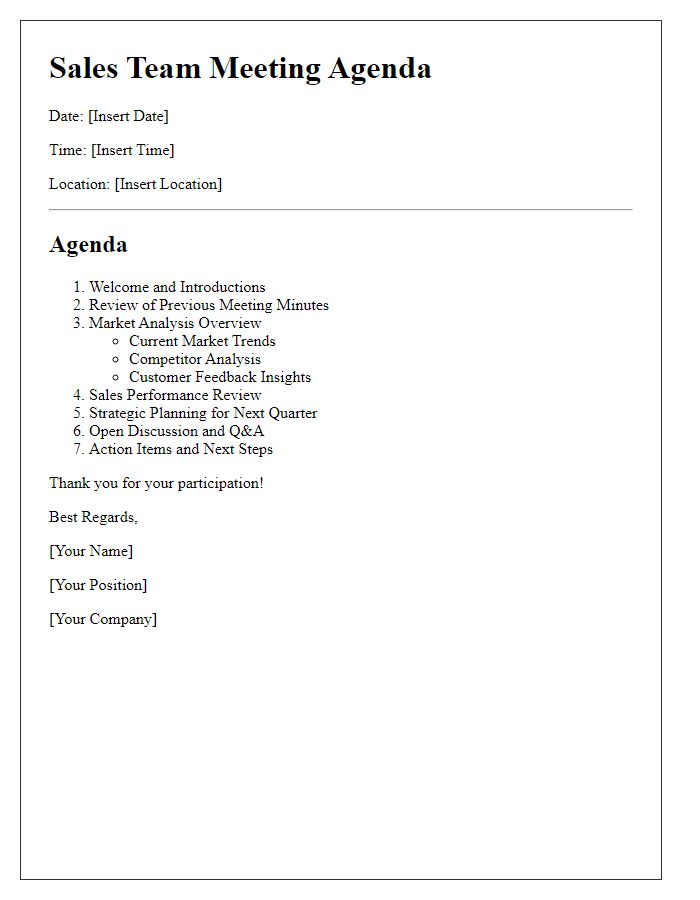
Letter template of sales team meeting agenda for team building activities
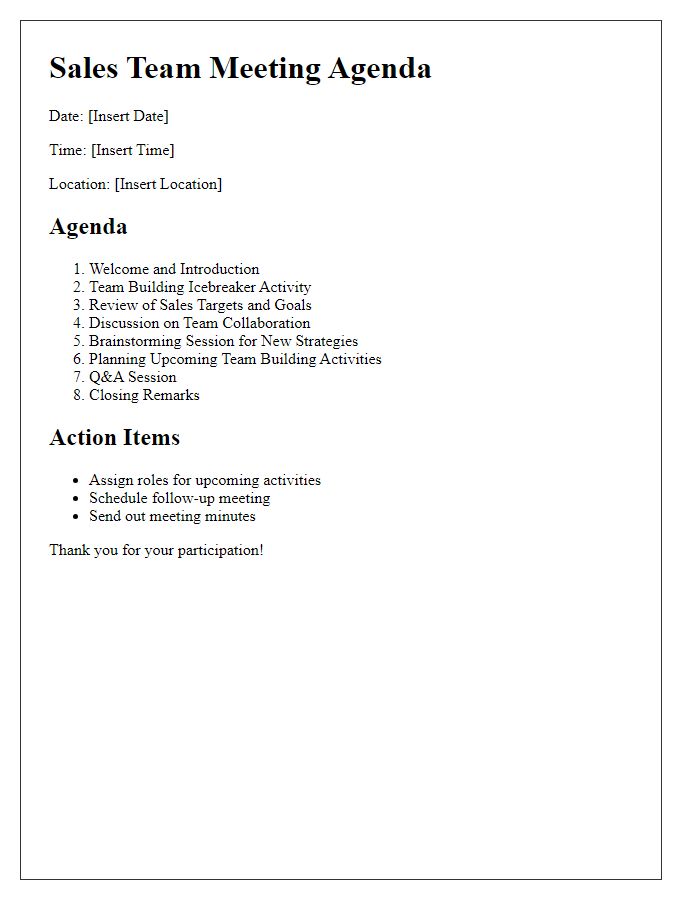

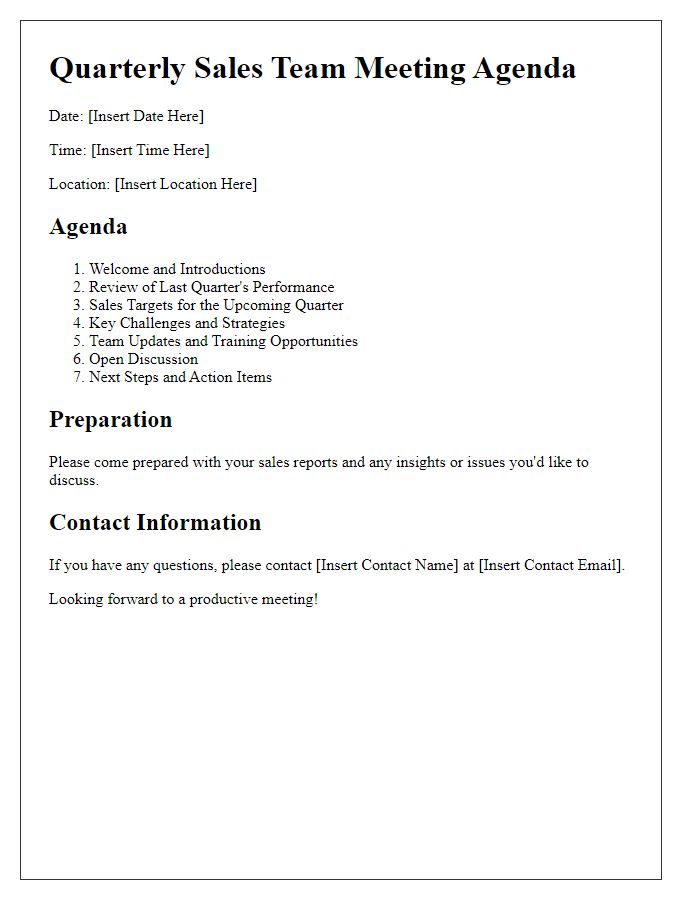
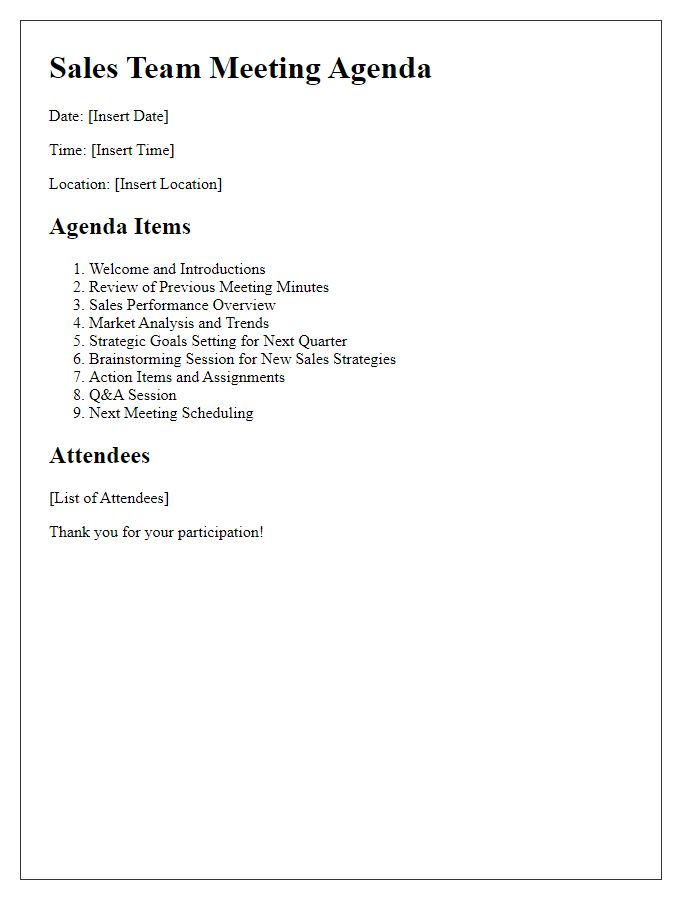
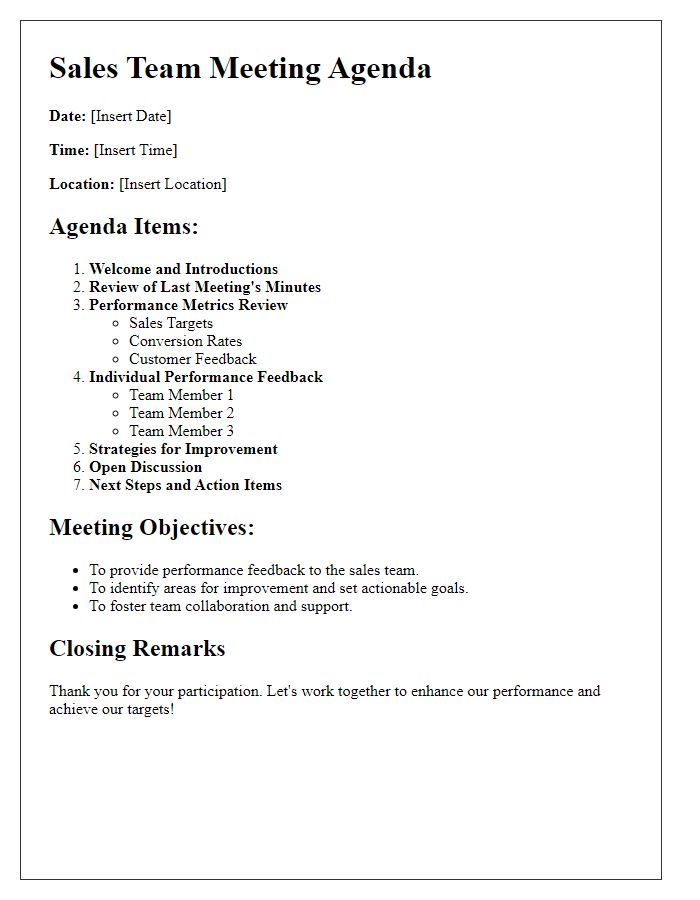
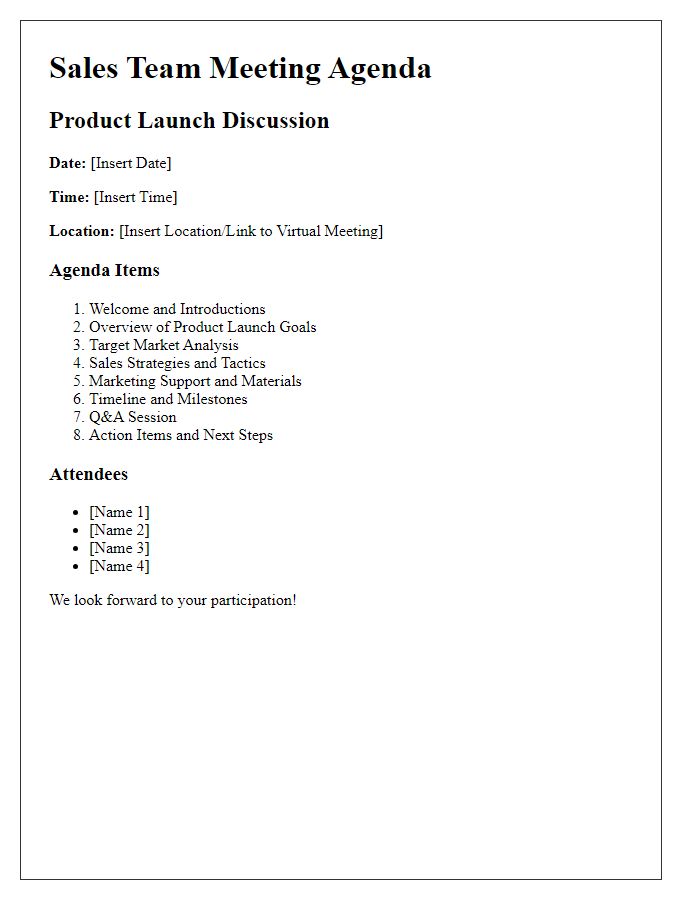
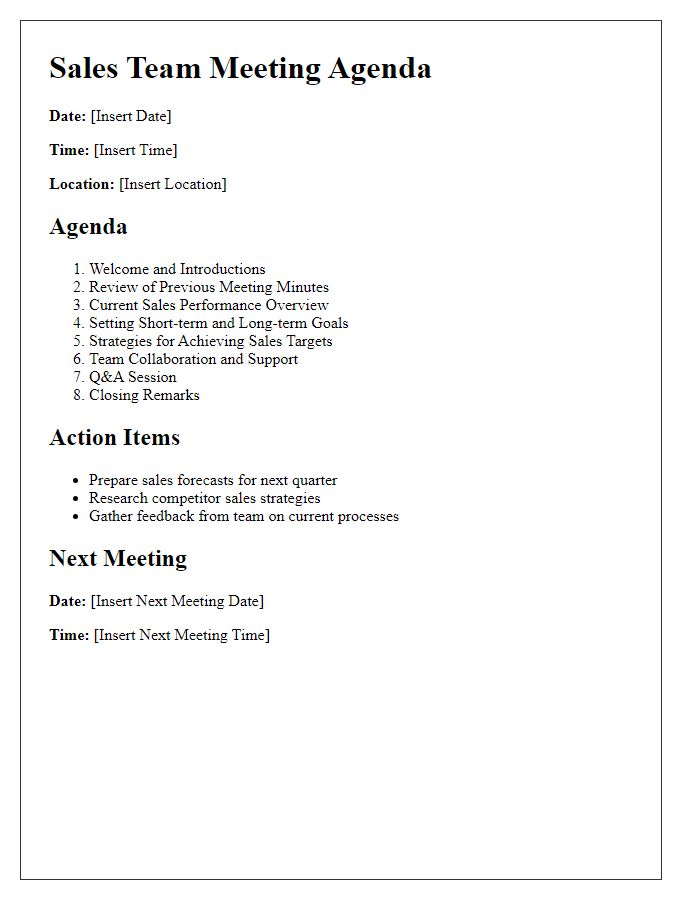
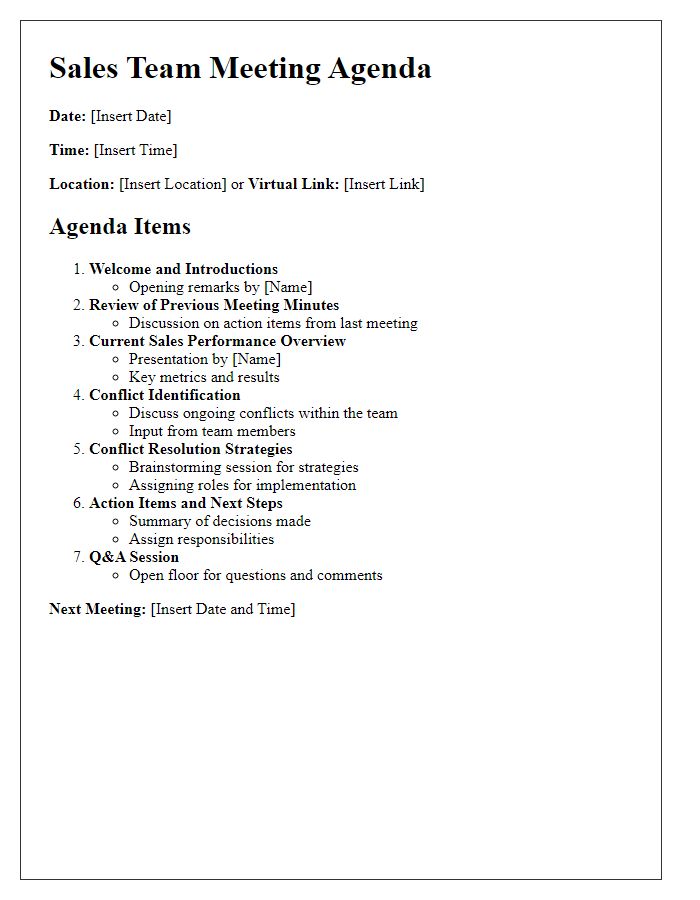

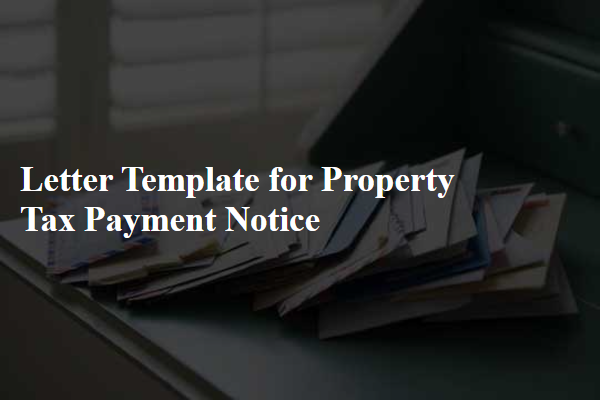
Comments